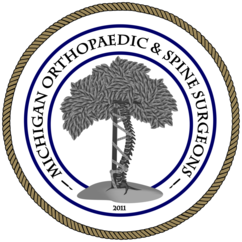PREVENTION
Regular exercise, a balanced diet, and a healthful weight can help you reduce your risk of developing osteoarthritis, especially in the hips and knees, or suffering sports injuries. Exercise helps bone density, improves muscle strength and joint flexibility, and enhances your balance. Take part in regular walking, strength training, swimming, dancing, tai chi, gardening, and similar low-impact activities.
A bone-healthy diet should be rich in calcium and Vitamin D. Check to see if your favorite foods are fortified, and consider taking a daily vitamin or mineral supplement. Several medications are available to prevent osteoporosis. Ask your doctor which medications can best help you minimize additional bone loss and reduce your risk for fractures.
SYMPTOMS
The symptoms of rheumatic disease or arthritis can vary. If you have a sports-related injury, get prompt medical attention to determine the severity. Symptoms of distress include:
- Swelling, warmth, or redness in the joint
- Recurring or constant joint pain or tenderness
- Joint stiffness or difficulty in using or moving the joint after a period of movement or activity
- A crunching feeling or the sound of bone rubbing on bone
DIAGNOSIS
No single test can diagnose osteoarthritis. It is so common that symptoms or signs seemingly caused by the disease actually may be due to other medical conditions. Your doctor will ask you to describe the symptoms and review your medical history, and will examine any bothersome joints. A number of tests may be used to help achieve an accurate diagnosis, including:
- X-rays
- Magnetic Resonance Imaging (MRI)
- Blood tests
- A joint aspiration, which involves drawing fluid from the joint for examination
TREATMENT
The only type of arthritis that can be cured is that caused by an infection. All other types must be managed with a combination of rest, regular exercise, vitamin and mineral supplements, and medication. Consult your doctor before using any alternative therapy that has not been prescribed or recommended by your healthcare team. Common treatments include:
- Acetaminophen (Tylenol) for pain without inflammation
- NSAIDs such as aspirin or ibuprofen (Motrin, Advil) for pain with inflammation
- Topical analgesic products or the nutritional supplement combination of glucosamine and chondroitin may help
- Corticosteroid medications, such as prednisone or cortisone to reduce inflammation
Joint replacement: Your doctor may try a combination of exercise, walking aids, or medication to help strengthen muscles surrounding the joint and to ease associated stress and pain before considering joint replacement. In the case of hip replacement, doctors have found that surgery can be very successful in younger people as well as for those over 60 years of age. Recent studies suggest that people who elect to have surgery before advanced joint deterioration occurs tend to recover more easily and have better outcomes.

Recent Comments